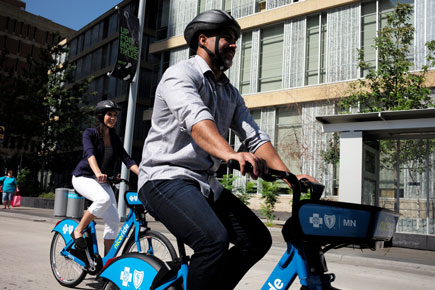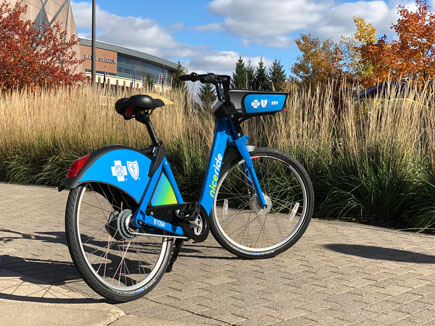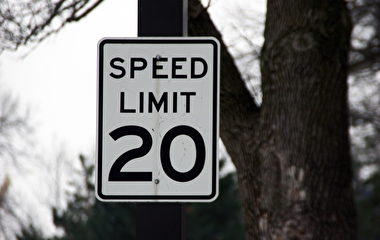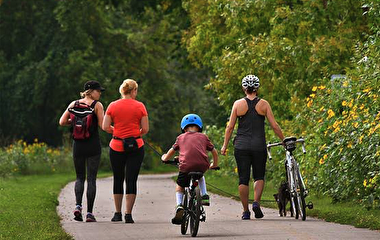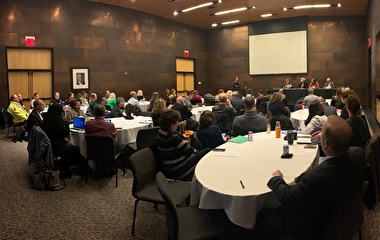The introduction of “dockless” or “stationless” systems is causing significant disruption to the bike-share market. By eliminating the need for docks, these systems can reduce costs and deployment time, allowing them to potentially serve a larger area, charge less per ride, and eliminate the need for public funding. However, these systems also present new challenges.
“Most dockless providers are private, venture-capital-funded entities, representing a significant departure from current public and nonprofit approaches,” says Frank Douma, director of the State and Local Policy Program at the Humphrey School of Public Affairs. Several cities have encountered challenges in securing cooperation from these operators in areas such as data transparency.
“This raises a key question,” Douma says. “To what extent can cities use contracts and governance to exchange use of the public right-of-way for operating requirements that advance equity, accessibility, innovation, and other goals?”
A new U of M report presents recommendations for regulating dockless bike share in cities and ties these approaches to the implementation of Nice Ride Minnesota’s dockless pilot. It also examines prominent challenges in coordination and implementation and highlights novel approaches, with an eye toward the future of bike share in the Twin Cities.
“Access to and affordability of transportation services help make a city work,” says Eric Muschler, program officer with the McKnight Foundation, the project’s sponsor. “Shared mobility services and innovation in the transportation industry are disrupting the traditional ways we plan and build our infrastructure and how we will use transportation in the future. Ensuring it serves all citizens and has a net positive benefit to community and livability is crucial.”
As part of their study, Douma and research assistant Austin Hauf reviewed the wider literature on “smart mobility,” a catchall term that encompasses bike share, automated vehicles, ride-hailing services, congestion-pricing mechanisms, and other technology-driven transportation innovations. “The smart mobility literature indicates that cities may be missing a key opportunity to establish robust governance frameworks that guarantee public value in the face of a rapidly evolving transportation landscape,” Douma says.
For additional context, the researchers completed case studies of four U.S. cities that host dockless systems: Dallas, Seattle, San Diego, and Washington, DC.
“The case studies touch on a few consistent challenges,” Douma says. “Improperly parked bikes are a nearly universal problem in cities with dockless bike share, though the intensity of the problem is sometimes exaggerated.” Still, he notes, “It’s important to address this issue. Improperly parked bikes can block sidewalks and walkways and create barriers for people with disabilities or mobility challenges.”
Bike maintenance is another consistent challenge in dockless systems. “The bikes many providers use are made more cheaply, which minimizes loss if the bikes are vandalized or stolen but increases the likelihood of mechanical failure,” he says.
The final report includes general observations and recommendations for cities and service providers (see sidebar).
